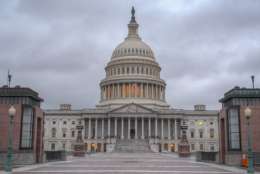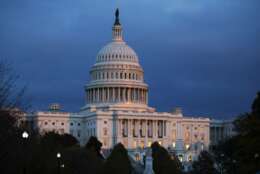Pay & Benefits
-
The Congressional Budget Office's price tag on paid parental leave does not take into account employee turnover.
December 16, 2019 -
The 2020 NDAA bars DoD from converting military medical billets to civilian ones until more analysis is done.
December 13, 2019 -
Experts on Wall Street and world financial markets have been predicting another recession, some almost daily, since the last one ended more than 10 years ago.
December 12, 2019 -
Twelve weeks of paid parental leave is the main attraction in the House-passed defense authorization bill, but it has a lot more for civilian federal employees.
December 11, 2019 -
When many people consider purchasing long term care insurance, which isn’t cheap, they weigh the odds and worry that they might not collect.
December 11, 2019 -
Federal employees will have up to 12 weeks of paid leave for the birth, adoption or foster of a new child starting in October 2020, if Congress passes and the president signs the annual defense policy bill into law.
December 10, 2019 -
Just about everybody with money in the stock market knows that the current, record long bull market has got to end someday.
December 10, 2019 -
Congress and the White House have struck a deal to include 12 weeks of paid parental leave for federal employees in the upcoming defense authorization bill. But the program would only grant parental leave, not paid time off to care for a sick family member, as originally envisioned by House Democrats.
December 09, 2019 -
The end of the federal health insurance open season is just days away but by now most people in the 30-plus plans and options have made their decision.
December 06, 2019 -
Beneficiaries credit cards were hit with charges up to 100 times what they should have been.
December 05, 2019 -
Does your bucket list include actively participating in the annual federal health insurance open season? Probably not.
December 05, 2019 -
The money you save, without losing any benefits or coverage, could be enough to buy you a new car next year — half a car, anyhow.
December 04, 2019 -
The inspector general at the Office of Personnel Management said the uncertainty surrounding the agency's proposed merger with the General Services Administration is continued concern headed in 2020.
December 03, 2019 -
You can’t be covered by any of the FEHBP plans unless you were enrolled in one — as in paying premiums — for the five years prior to retirement.
December 02, 2019 -
Health premiums can be hefty. Yet with all the choices in the Federal Employees Health Benefits Program there is no reason someone should pay more than necessary.
November 29, 2019















